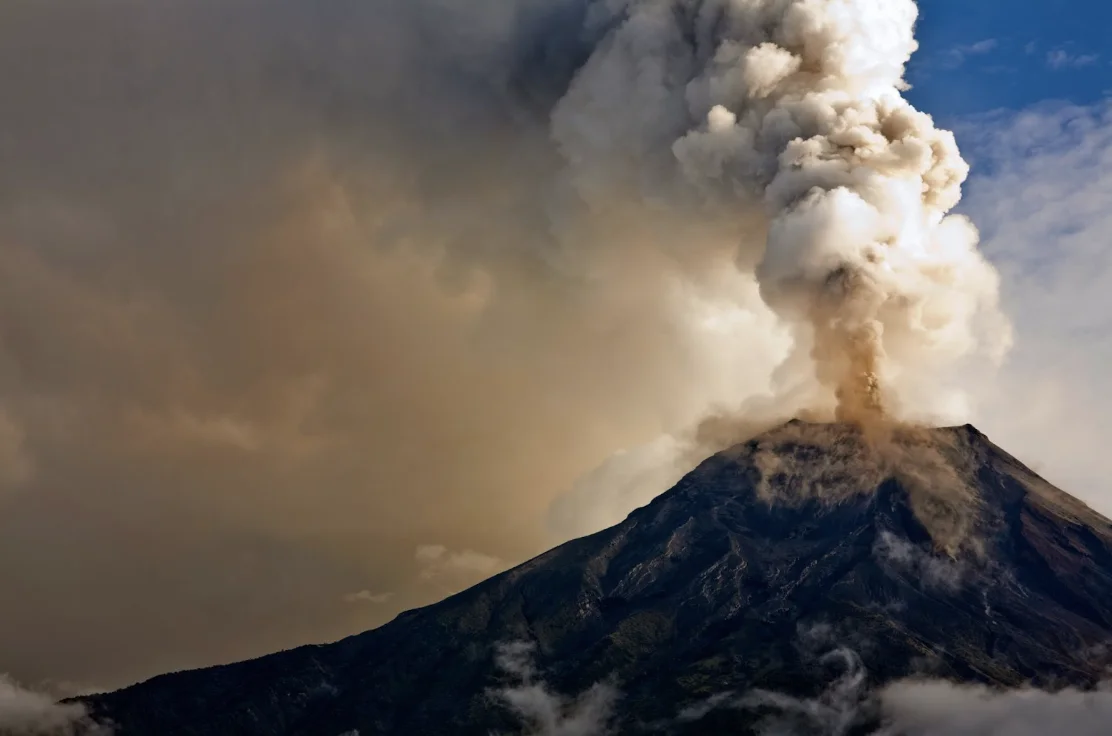Volcanic eruptions, though infrequent, present considerable risks to homes and properties, especially in areas prone to such activity. Given the potential devastation of these natural events, homeowners might question whether their insurance policies provide relief after an eruption.
In this discussion, we’ll explore the details of homeowners insurance in relation to volcanic eruptions, explain what is commonly covered, and offer advice on securing sufficient protection for your home and possessions.
Coverage for Volcanic Eruptions by Homeowners Insurance
Homeowners insurance usually doesn’t have a specific “volcano insurance” category, but it often covers damage from volcanic eruptions. This includes volcanic blasts, lava flows, ash, and related fires and explosions. Homeowners in areas at risk of volcanic activity need to understand what their policy covers.
Dwelling Coverage
This part of your homeowner’s policy is designed to fund the repair or reconstruction of your home if a covered peril, such as a volcanic eruption, damages it. It’s essential to ensure that the coverage limit of your dwelling coverage is sufficient to cover the total cost of rebuilding your home at current market rates.
Personal Property Coverage
Personal property coverage protects items in your home like furniture and electronics. It’s part of your main house insurance and has set limits for different types of items. Homeowners should list their belongings to make sure they have enough coverage and think about extra insurance for expensive items. This ensures you can replace these items if they are damaged, for example, in a volcanic eruption.
Removal of Ash and Debris
The cost of removing volcanic ash or other debris can be substantial following a volcanic eruption. Many policies cover these expenses if they directly cause loss to insured property, easing the financial burden on homeowners.
Finding Out If You Are Covered
Homeowners should proactively verify the specifics of their insurance coverage by speaking with their insurance agents, especially if they reside near known volcanic regions. Agents can provide detailed information on policy inclusions and exclusions and help adjust coverage to suit individual needs.
US Geological Survey (USGS) Resources
The USGS offers helpful resources for those living near active volcanoes. By checking the USGS database, homeowners can find out if they’re close to an active volcano and evaluate their risk. The USGS Volcanic Threat Assessment is especially useful, as it uses 24 factors including the type of eruption, past eruptions, and current activity to measure potential dangers. This assessment helps homeowners understand how vulnerable they are to volcanic threats, aiding them in making well-informed insurance choices.
Non-Covered Natural Disasters Associated with Volcanic Eruptions
Volcanic eruptions may lead to other disasters like earthquakes and tsunamis, which usually aren’t covered by standard homeowners’ insurance. To fully protect their homes, homeowners might have to buy separate policies for these specific risks.
Earthquake Insurance
This coverage is crucial for homeowners in earthquake-prone areas, as it covers damages directly caused by seismic activities.
Flood Insurance
Particularly relevant for those living near coasts and water bodies, flood insurance is essential to cover damages from flooding, which may result from tsunamis following volcanic eruptions.
Additional Insurance Options
For comprehensive protection, homeowners should consider extending their coverage to include other possible damages related to volcanic activity:
Comprehensive Auto Insurance:
Comprehensive auto insurance is advisable if you live in a volcanic area, as it covers damage to vehicles caused by non-collision events, including volcanic eruptions. This type of coverage ensures that your vehicle repairs or replacement costs are handled in case of volcanic damage.
Summary
Living close to a volcano means you need to be thoughtful about your insurance. It’s important to have a strong insurance policy that covers the specific risks of volcanic eruptions and other related natural disasters. Talking with an insurance agent to customize your coverage is not just smart; it’s necessary. By planning ahead and using resources like the USGS, you can protect your home and feel more secure despite the unpredictable nature of volcanic activity.
FAQs
What should I do if a volcanic eruption damages my home?
Immediately contact your insurance company to report the damage. Document all damage with photos or videos, and record any repair costs or losses incurred. Your insurance company will guide you through the claims process.
Can I take any preventive measures to protect my home from volcanic damage?
While you cannot prevent volcanic eruptions, you can minimize potential damage by installing protective barriers or shields against lava flow or ash, reinforcing your roof to withstand heavy ash fall, and ensuring that your landscaping directs lava flows away from structures when possible.
How quickly can I expect my claim to be processed following volcanic damage?
Claim processing times can vary depending on the severity of the eruption and the number of claims filed. It’s important to file your claim promptly and provide all necessary documentation to help speed up the process.
What should I include in a volcanic eruption emergency plan?
Your emergency plan should include evacuation routes, emergency contacts, a communication plan with family members, and a list of essential items to take if you need to evacuate quickly. Also, keep important documents such as your insurance policy in a safe, accessible place.
Get the right coverage for your home with tutenagency
New tutenagency customers?
Quote homeowners insurance online or call (334) 502-5111 to insure your home.
Legal Disclaimer: ADVERTISING MATERIAL ONLY. Do not rely on this site or this article for legal or financial advice. The information provided on 210agency.com is strictly for educational purposes and to provide you with general educational information. Since state laws and financial regulations are subject to change, please schedule an appointment with an attorney or qualified financial advisor in your area to further discuss your personal situation. This public information is neither intended to, nor will it, create an attorney-client or financial representative relationship.

